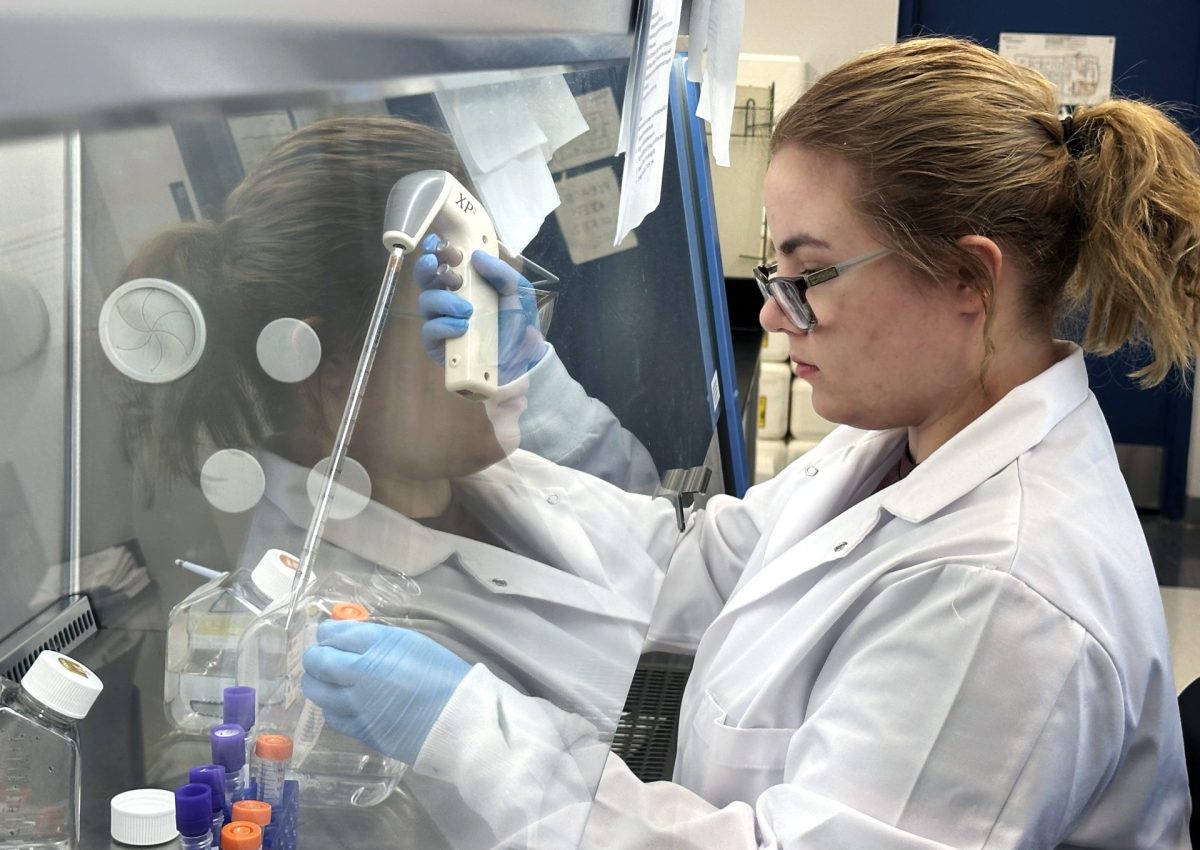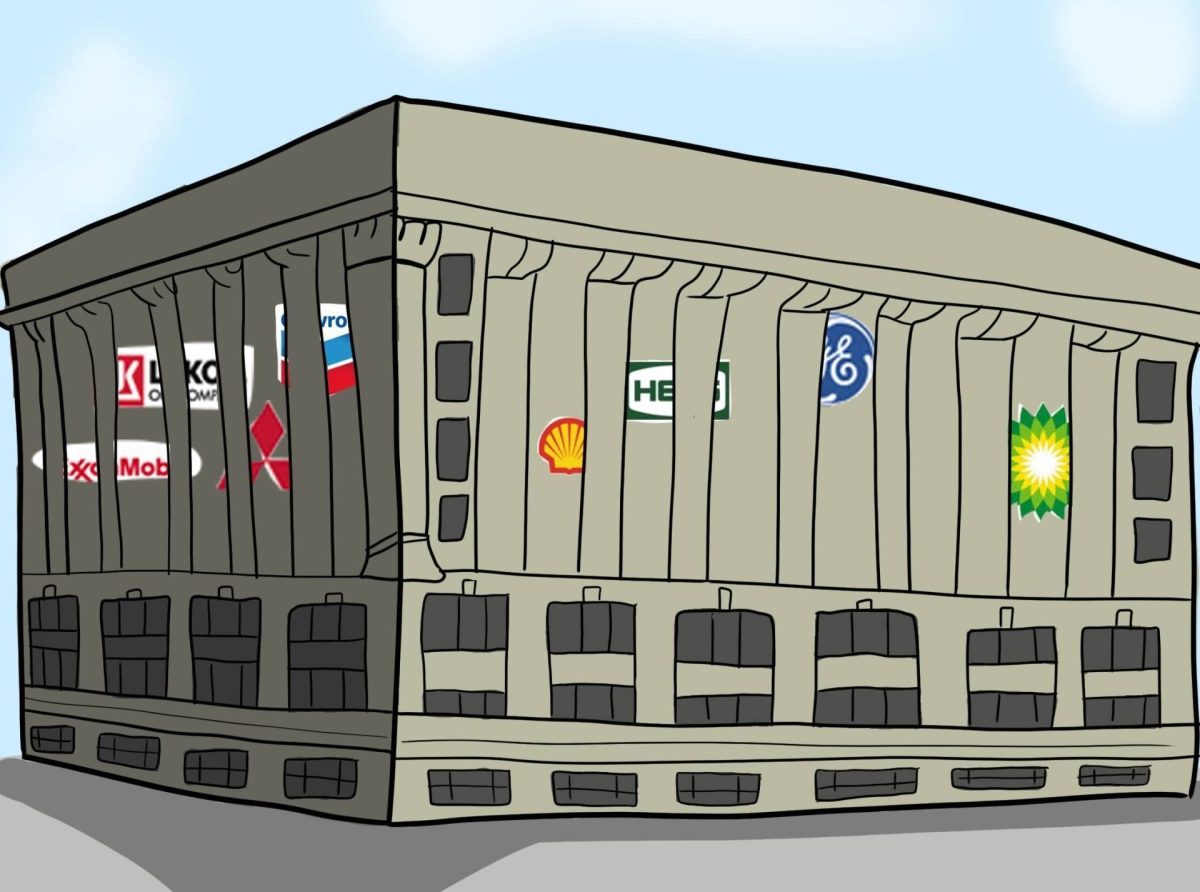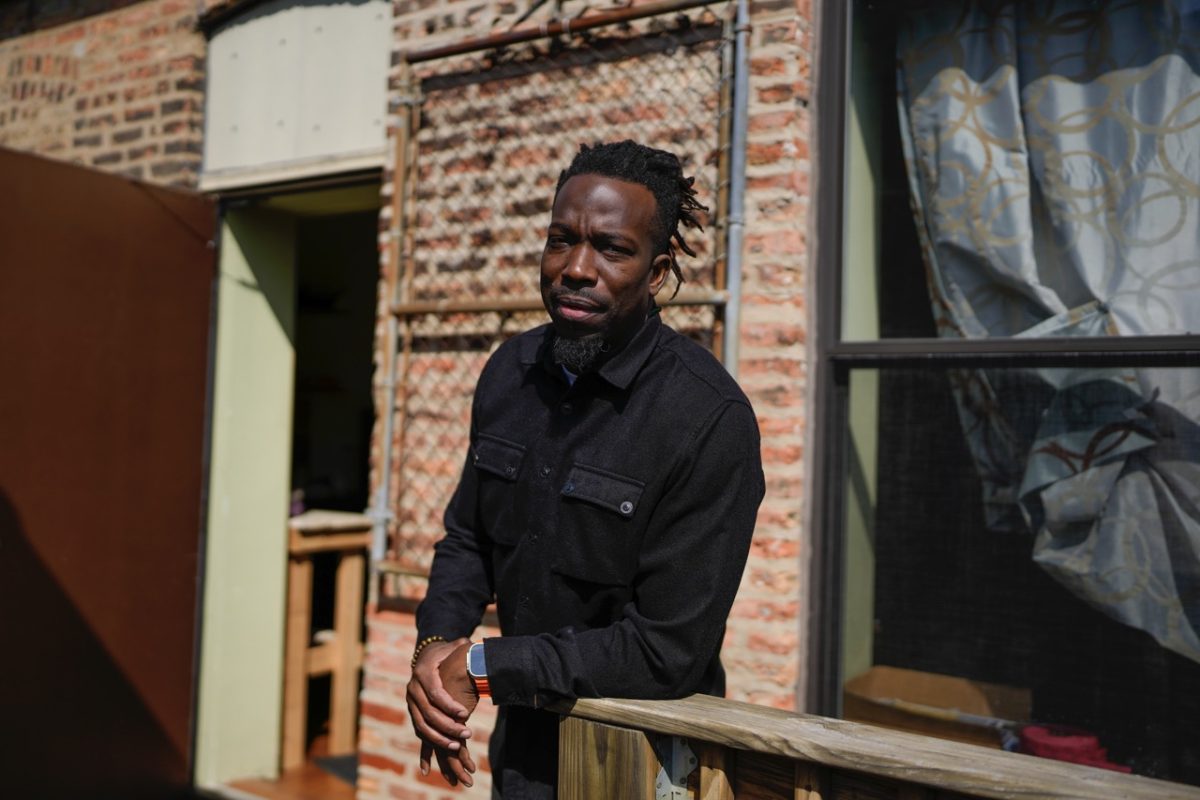Imagine this: You just got out of class, trying to rush home. It’s like a stampede. A crowd of students pushes down Fullerton Avenue towards the “L.” Being “stressed out” is not even the half of your worries. Mom’s coming over tomorrow, and as always she expects a meal and a clean house. You have two weeks worth of laundry piled high and you have no detergent. Your refrigerator is empty and you are on your last pack of ramen noodles. To make matters worse, you have no time to go to the grocery store.
No worries, you can just shop at the Fullerton “L” station: Peapod has given grocery shopping a completely new meaning.
Chicago CTA and Metra riders will now be able to tackle their grocery shopping lists on-the-go this October, as the Skokie-based online grocer Peapod expands its virtual supermarket to 17 CTA and Metra stations across the city.
Founded in 1989 in Evanston, Peapod now serves 24 U.S. markets throughout the Midwest and East Coast. Last spring, the online grocer placed interactive billboards at train stations across Philadelphia, following a virtual grocery store model pioneered by the British-based chain Tesco at subway stations in Seoul, South Korea.
The success of the expansion in Philadelphia led Peapod to launch an interactive billboard at the State and Lake CTA “L” station on the Red Line last May, allowing commuters to scan and buy grocery items using a free smartphone app.
Angelica Robinson, a DePaul graduate student, said she would be hesitant to ever use Peapod or any virtual grocer service – she just does not buy the concept.
“I’m not big on online shopping because I like to be able to touch [what I buy], feel it and see what it looks like,” said Robinson. “As far as getting my food that I eat, I would not want to order something and expect it to be the best quality based on a piece of paper I scanned.”
When asked about whether she would be open to buying non-perishable goods, such as toilet paper and canned goods, Robinson was not as opposed.
“I think I’d be more likely to buy detergent or toilet paper in that way, but when it comes to produce or meat, I wouldn’t do that,” said Robinson. “I need to see what I’m getting.”
When Peapod transformed the Red Line’s State and Lake stop into a supermarket aisle, the virtual grocer lined both sides of the 60-foot tunnel leading into the station with life-size depictions of grocery store must-haves, including paper towels and fresh produce. The 12-week experiment proved that the scan-and-buy concept allured many commuters.
“Our mobile downloads really increased during that time period,” said Elana Margolis, Peapod spokeswoman, to the Chicago Tribune. “The sales went up for the products on the board.”
Will Schau, an undergraduate broadcast journalism student at DePaul, said he has used Peapod’s grocer services for years without a glitch.
“I’ve used Peapod; it works out great,” said Schau. “The amount of time it takes going to the grocery store every week is quite a burden, so being able to order things online is much easier. It is nice having stuff dropped off at your door.”
Virtual shelves will go up over the next few weeks at dozens of stations in Chicago, Boston, Connecticut, New York, New Jersey, Philadelphia and Washington, D.C., following similar models of the virtual billboards launched last spring. The virtual billboards will feature grocery cart staples, including coffee; condiments; cleaning products; soft drinks; snacks; cereal; milk; bread; health and beauty products; and fresh fruits and vegetables.
The process is quite simple – all commuters with iPhones, iPads and Android phones have to do is scan a QR code, download the Peapod app and start shopping by scanning bar codes on the products. The only dilemma is that groceries will not be delivered until one business day after a commuter’s cart is filled and purchased.
While the East Coast virtual stores will stock national products, the Chicago locations will boast some local luxuries and homegrown brands, including Lou Malnati’s pizza, Garrett Popcorn and Eli’s Cheesecake.
DePaul student Naeem Bahora said he is interested in the idea, but is not sure how long his interest would last.
“I have not (heard of Peapod,) but it does sound interesting,” said Bahora. “Personally, I’d try it out maybe once or twice, but in the long run I’d prefer to just go to Dominick’s or Jewel.”







